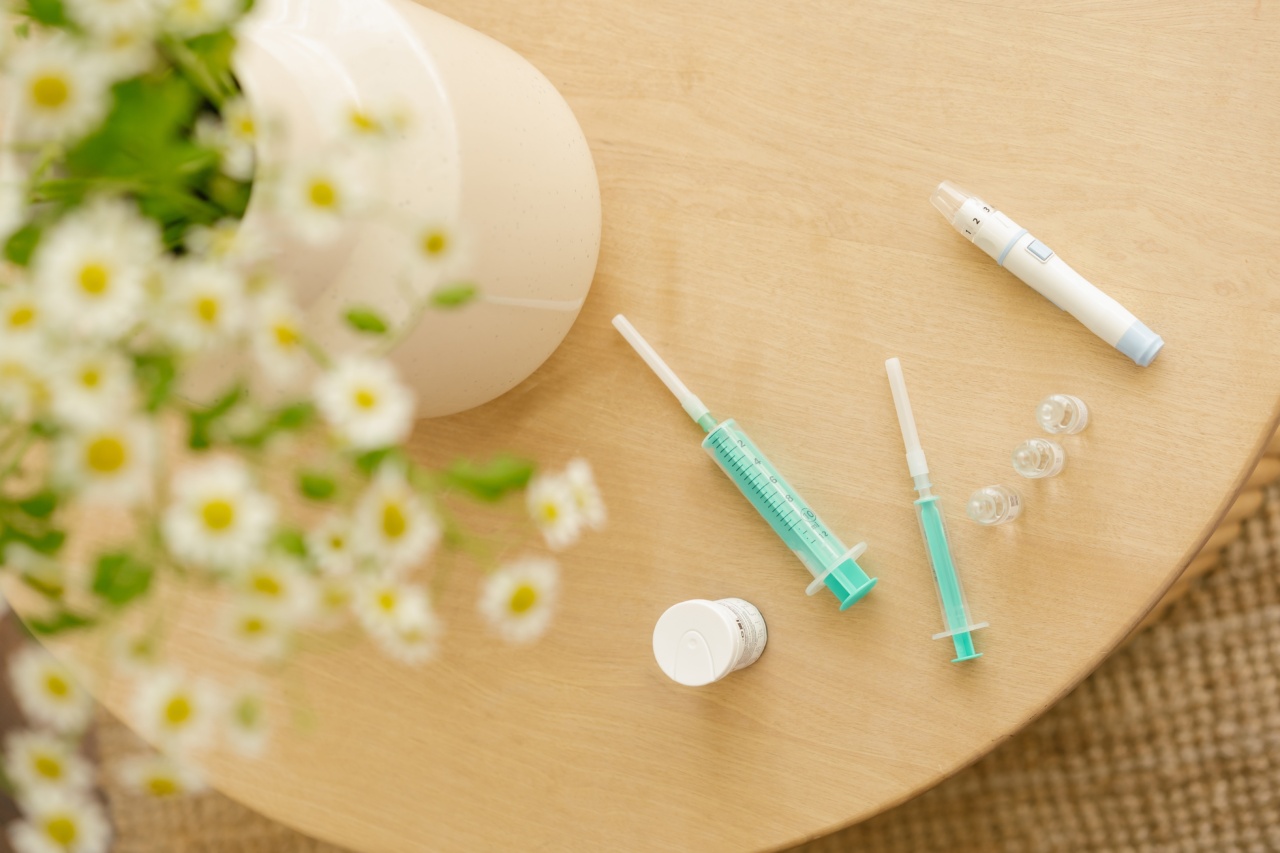Diabetes is a chronic condition that affects millions of people worldwide. It is characterized by high blood sugar levels due to the body’s inability to produce or properly use insulin.
While medication is often prescribed to manage diabetes, there are also natural methods that can help reverse the condition without relying on drugs. In this article, we will explore ten effective strategies to reverse diabetes and achieve better overall health.
1. Adopt a Low-Carb Diet
A low-carb diet can be highly beneficial for individuals with diabetes. By limiting the intake of carbohydrates, especially refined sugars and grains, you can regulate blood sugar levels and improve insulin function.
Focus on consuming whole foods such as fruits, vegetables, lean proteins, and healthy fats.
2. Increase Physical Activity
Regular physical activity is crucial for reversing diabetes. Exercise helps the body utilize glucose more effectively and enhances insulin sensitivity.
Aim for at least 150 minutes of moderate-intensity exercise per week, including activities like brisk walking, cycling, or swimming.
3. Maintain a Healthy Weight
Losing excess weight is essential for diabetes reversal. Excess body fat contributes to insulin resistance and increases the risk of developing type 2 diabetes.
By adopting a healthy eating plan and engaging in regular exercise, you can shed pounds and improve insulin sensitivity.
4. Stay Hydrated
Proper hydration plays a significant role in diabetes management. Drinking an adequate amount of water helps control blood sugar levels and aids in the elimination of toxins from the body.
Aim to drink at least eight glasses of water per day and limit sugary beverages.
5. Get Sufficient Sleep
Sleep deprivation can negatively affect insulin sensitivity and disrupt blood sugar regulation. Prioritize getting seven to nine hours of quality sleep each night to support diabetes reversal and overall well-being.
6. Manage Stress Levels
Chronic stress can raise blood sugar levels and increase the risk of developing diabetes-related complications.
Engage in stress-reducing activities such as meditation, yoga, or deep breathing exercises to lower stress levels and improve diabetes management.
7. Incorporate Intermittent Fasting
Intermittent fasting is an eating pattern that alternates between periods of fasting and eating. This approach can improve insulin sensitivity, promote weight loss, and assist in diabetes reversal.
Consult with a healthcare professional before attempting intermittent fasting.
8. Consume Diabetes-Friendly Herbs and Spices
Several herbs and spices possess anti-diabetic properties and can aid in blood sugar regulation. Some examples include cinnamon, fenugreek, ginger, and turmeric.
Incorporate these ingredients into your meals or try them in supplement form after consulting with a healthcare provider.
9. Increase Fiber Intake
A diet rich in fiber can assist in diabetes reversal. Soluble fiber, in particular, helps slow down the absorption of sugar and improves blood sugar control. Include fiber-rich foods such as legumes, whole grains, and vegetables in your diet.
10. Monitor Blood Sugar Levels and Seek Professional Guidance
Regularly monitoring blood sugar levels is crucial when attempting to reverse diabetes. This will help you identify the effects of lifestyle changes and provide insights into adjustments that may be needed.
Additionally, consult with a healthcare professional or a registered dietitian to create an individualized plan for diabetes management and reversal.































